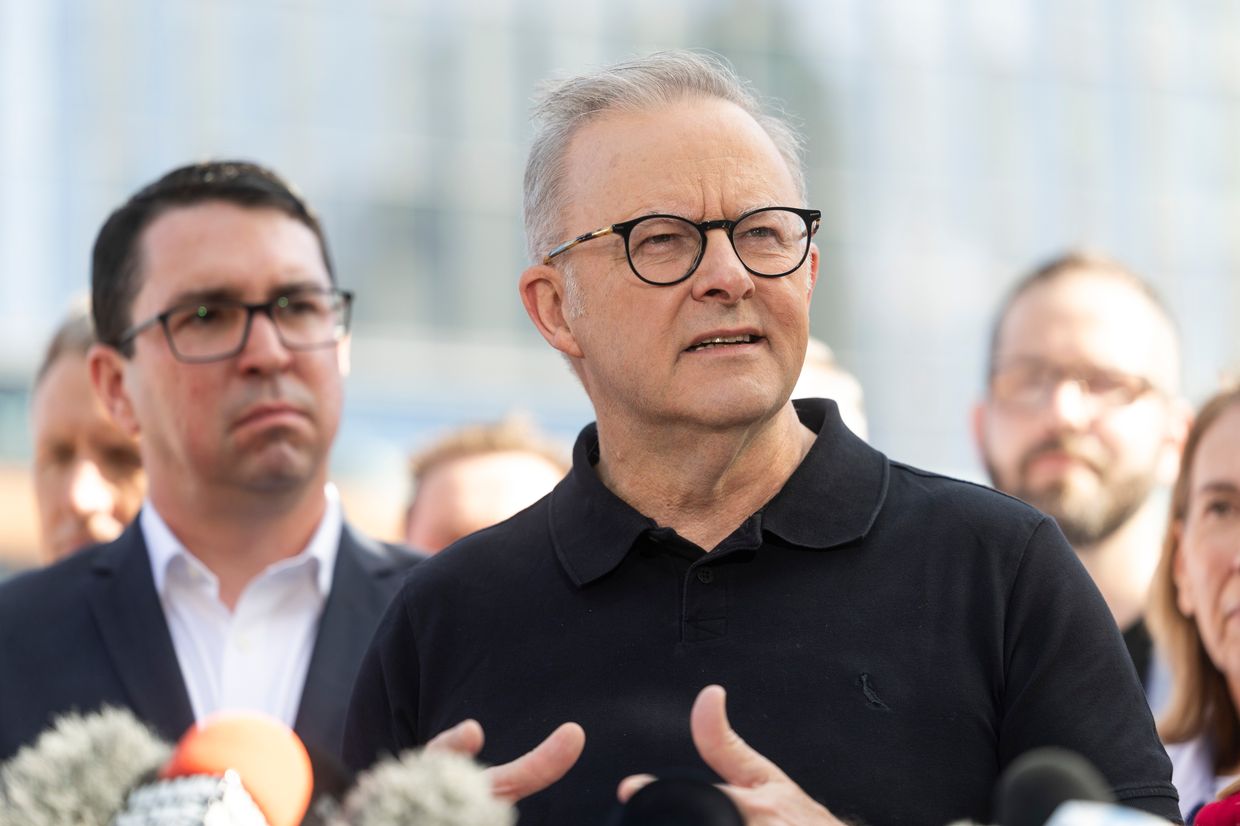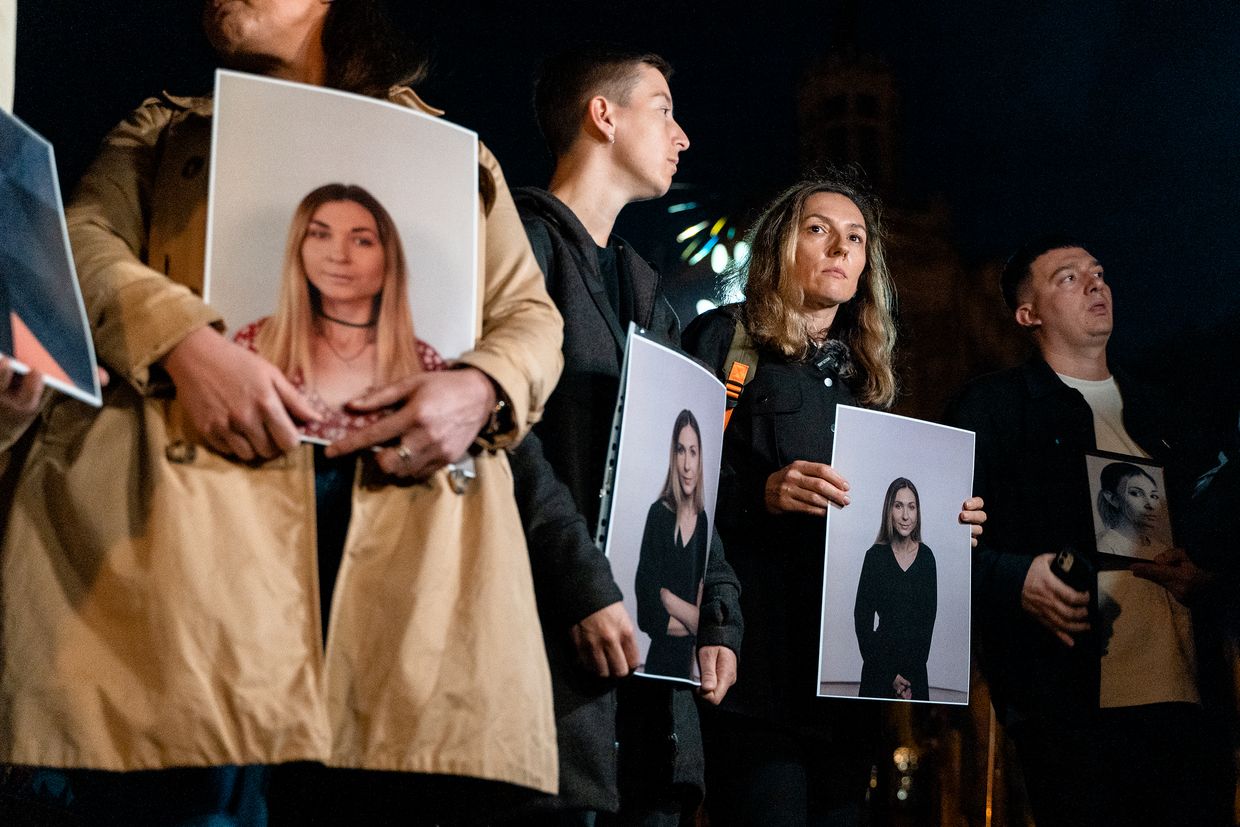Kremlin spokesperson Dmitry Peskov rejected the idea of a 30-day ceasefire between Russia and Ukraine, claiming in an interview with ABC News on May 10 that it would be "an advantage" for Ukraine.
The visit marks Merz’s first trip to Ukraine, and the first time all four leaders have travelled there together.
"Our involvement in the war was justifiable, and this belongs to our sovereign rights," North Korean dictator Kim Jong Un said. "I regard this as part of the sacred mission we must execute for our brothers and comrades-in-arms."
The number includes 1,310 casualties that Russian forces suffered over the past day.
"We have a plan B and a plan C. But our focus is plan A, the essence of which is to get everyone's support" for Ukraine's accession, EU foreign policy chief Kaja Kallas said.
"(T)he presence at the Victory Parade of a country that bombs cities, hospitals, and daycares, and which has caused the deaths and injuries of over a million people over three years, is a shame," Polish Prime Minister Donald Tusk said.
"According to the participants of the performances, their goal is to remind the civilized world of the barbaric actions of Moscow, which for many years and decades has systematically violated international law," a source in Ukraine’s military intelligence agency (HUR) told the Kyiv Independent.
"I have great hope that an agreement for a ceasefire in Ukraine will be reached this weekend," German Chancellor Friedrich Merz said on May 9, shortly before traveling to Kyiv alongside the leaders of France, Poland, and the U.K.
U.K. Prime Minister Keir Starmer, French President Emmanuel Macron, German Chancellor Friedrich Merz, and Polish Prime Minister Donald Tusk will arrive in Kyiv early on May 10.
The United States embassy in Kyiv on May 9 issued a warning that Russia could launch "a potentially significant" attack in the coming days, despite Putin's self-declared Victory Day "truce."
The sanctioned oil tankers have transported over $24 billion in cargo since 2024, according to Downing Street. The U.K. has now sanctioned more shadow fleet vessels than any other country.
The sanctions list includes 58 individuals and 74 companies, with 67 Russian enterprises related to military technology.
Labor wins Australia’s federal election, seen as major backlash against far-right

Labor has secured a federal election victory in Australia, in what was widely seen as a major domestic backlash against Donald Trump-style politics and the country’s rightward drift under the conservative coalition.
Prime Minister Anthony Albanese secured a second term, becoming the first Australian leader to do so since John Howard in 2004. His party not only retained government but expanded its majority.
“Today, the Australian people have voted for Australian values, for fairness, aspiration and opportunity for all,” Albanese told cheering supporters in Sydney on May 3, as reported by the Guardian.
The ABC projected Labor to win 86 seats, a clear majority, while the coalition got 39, down 18 from the previous election. Sixteen seats remained undecided.
The Coalition leader Peter Dutton conceded defeat, calling the outcome “obvious.” “We did not do well enough during this campaign,” he told coalition supporters in Brisbane.
Labor’s campaign framed the election as a choice between steady leadership and chaos, drawing comparisons between the Coalition’s policies and U.S. President Donald Trump.
Trump's unpopular 10-percent tariff on Australian goods and the global financial instability caused by his trade policies raised concerns among voters, France 24 reported on May 3. Other key issues in the campaign included the rising cost of living, wage growth, and Coalition's proposals like restricting remote work for public servants.
Peter Dutton’s “Trump-lite” policies, including plans to cut public service jobs in the name of government efficiency, alienated some voters, Henry Maher, a politics lecturer at the University of Sydney, told France 24.
On foreign policy, his government has prioritized support for Ukraine, committing more than $1.3 billion in aid and backing international efforts to hold Russia accountable for its invasion. In July 2023, Albanese met with Ukrainian President Volodymyr Zelensky.
Australia has imposed sanctions on over 1,200 individuals and entities linked to Russia’s war and has called on China to use its influence to help end the war.
On April 22, when asked about reports that Russia had requested to build a military base in Indonesia, Albanese dismissed the claims as “propaganda” and criticized the opposition for echoing them.
“I have no wish to help promote Russia’s propaganda messages,” he said. “I’m anti-Russia. I’m not sure that everyone is on that page, but I think that Russia has very different values under an authoritarian leader.”
His comments appeared after Russia’s ambassador to Indonesia, Sergei Tolchenov, amid concerns of Moscow increasing its military presence in the region claimed that Australia lacks the geopolitical weight to counter Russian military manoeuvres in the Indo-Pacific.
Previously, there were unconfirmed reports of a potential Russian military base on Indonesia’s Biak Island, an area located strategically close to northern Australia around 1,360 kilometers away.

Most Popular

After 3 years of full-scale war in Ukraine, Europe announces plan to ban all Russian gas imports

Ukraine, Europe's ceasefire proposal includes US security guarantees, no recognition of Crimea, Reuters reports

Journalist Roshchyna's body missing organs after Russian captivity, investigation says

After Russia's deadly attack on Kyiv, Vance reposts denunciation of Zelensky

Ukrainian sea drone downs Russian fighter jet in 'world-first' strike, intelligence says
Editors' Picks

How medics of Ukraine’s 3rd Assault Brigade deal with horrors of drone warfare

As Russia trains abducted children for war, Ukraine fights uphill battle to bring them home

'I just hate the Russians' — Kyiv district recovers from drone strike as ceasefire remains elusive



